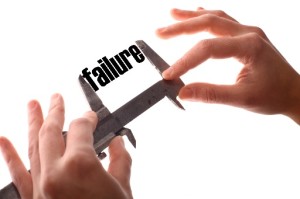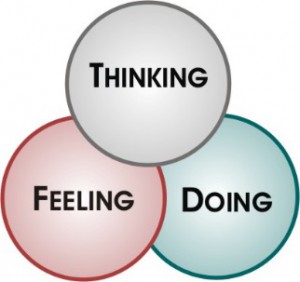 Imagine starting a business with the intent to fail. That sounds ludicrous but yet that’s what many entrepreneurs end up doing and it’s due to poor planning. There’s the old expression, if you fail to plan you plan to fail.
Imagine starting a business with the intent to fail. That sounds ludicrous but yet that’s what many entrepreneurs end up doing and it’s due to poor planning. There’s the old expression, if you fail to plan you plan to fail.
A business is meant to grow and thrive not merely to survive. In this way a business is like a living entity the same as a human being. Yes the first order of business is survival, but survival is not the ultimate goal. Once we’ve reached a certain stable phase in our life and business, survival should no longer be a concern.
Beyond Survival
After survival the leader and the business must grow, innovate and create in order to reach their full potential. The workplace provides a great platform for personal growth and development because we’re able to use all our capacities every day.
For the leader this means transformation from being in control and a doer of many things, to a strategic planner and developer of people and resources. Without going through this transformation the leader and the organization is doomed to be stuck in routine and lack risk-taking, which ultimately leads to regression rather than progression.
The Importance of Vision
 The business leader who fails to create a vision for the future and for himself risks to create an organization of mindless people who act like machines and ultimately become resistant to change and are demotivated. In the present world of fierce global competition this is a recipe for disaster.
The business leader who fails to create a vision for the future and for himself risks to create an organization of mindless people who act like machines and ultimately become resistant to change and are demotivated. In the present world of fierce global competition this is a recipe for disaster.
Use the Three Intelligences
 It is important for leaders to evolve in their way of thinking and not just in their technical knowledge related to their field, but also in the way they plan and make decisions. This means developing their intellectual or thinking intelligence, their heart of emotional intelligence and also their instinctive intelligence. The key is to use all three in balance. The head likes to think and plan, the heart likes to feel and the instinct likes to act. By becoming balanced, the leader uses his head to strategize, his heart to be effective with people and his instincts to take focused action.
It is important for leaders to evolve in their way of thinking and not just in their technical knowledge related to their field, but also in the way they plan and make decisions. This means developing their intellectual or thinking intelligence, their heart of emotional intelligence and also their instinctive intelligence. The key is to use all three in balance. The head likes to think and plan, the heart likes to feel and the instinct likes to act. By becoming balanced, the leader uses his head to strategize, his heart to be effective with people and his instincts to take focused action.
Succession Plan
Government officials and business consultants have for many years now been predicting a crisis in business succession due to the baby boomers business owners who were nearing or have surpassed retirement age.
 However, I just read that most entrepreneurs are not concerned about having a succession plan. It’s only when illness strikes that they are forced to take action and make decisions on who will succeed. This may turn out to be too late for many businesses. The saving grace may be that there are currently many buyers looking for business opportunities and selling the business due to illness might be the way out. This does not mean that the business owner will get the right price for their business, since lacking a plan for succession could mean that there’s a poor management system in place and that the business is highly dependent on the business owner. This would lower the perceived value of the business.
However, I just read that most entrepreneurs are not concerned about having a succession plan. It’s only when illness strikes that they are forced to take action and make decisions on who will succeed. This may turn out to be too late for many businesses. The saving grace may be that there are currently many buyers looking for business opportunities and selling the business due to illness might be the way out. This does not mean that the business owner will get the right price for their business, since lacking a plan for succession could mean that there’s a poor management system in place and that the business is highly dependent on the business owner. This would lower the perceived value of the business.
I have a friend whose father is well into his 90s and still running his business even though his capacities are deteriorating. He can no longer make proper decisions in a timely manner and has become a detriment to the business. The problem is he cannot let go and never learned to delegate. The fear of giving up control and developing others through delegation could have been addressed years ago through personal and leadership development and a change of perception and attitude. This would have ensured the health of the business.
Business growth and success can be defined in many ways. Each business owner must express that for themselves but one thing is clear, just like a human being a business or organization needs to evolve. This means the development and growth of people and the transformation of the leader’s role to one of mentor and coach.
Stephen Goldberg